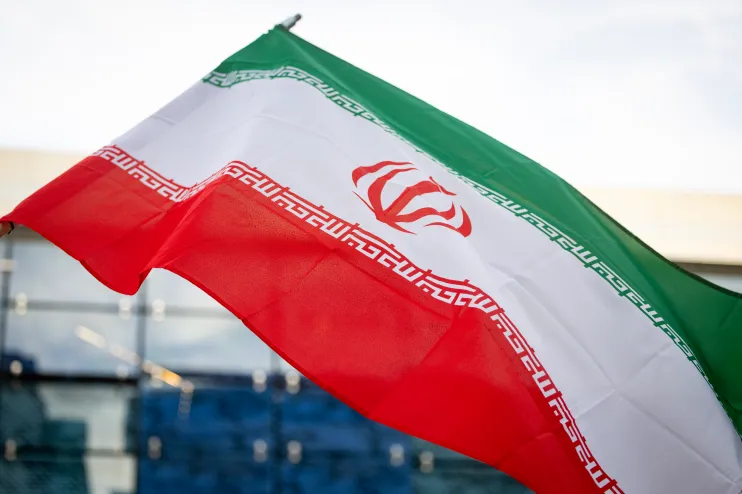Copyright cityam

The US cannot shoulder the burden of dismantling Iran’s energy export machine alone. The UK needs to step up and match our ally in both ambition and execution, says Lord Walney Last month’s UN security council vote to reimpose nuclear sanctions on Iran confirmed a geopolitical reality recognised by policymakers on Capitol Hill many years ago: that the threat posed by the regime in Tehran must be faced down from a position of strength, not comprise. The UK rightly played a crucial role in ensuring that Chinese and Russian efforts to keep in place sanctions relief on Iran failed. With the snapback now activated, the UK is, at long last, aligned with the US in acknowledging the failure of the 2016 Iran Nuclear Deal. The vote also marked a reaffirmation of our commitment to working multilaterally, with the US and other partners, to face down Iranian attempts to undermine the collective, international rules-based order. The government now has an opportunity to match the US’ political and diplomatic resolve on another critical issue – tackling the trade of sanctioned Iranian oil which underpins Tehran’s ability to project terror and instability at home and abroad. Funding terror Through the National Iranian Oil Company and Islamic Revolutionary Guard Corps, revenues from this $50bn shadow economy directly fund proxy fighters in Gaza, Yemen and Lebanon, as well as intelligence operatives engaged in covert activity in London and other European cities. Oil is the principal enabler of hostility directed by Iran towards the UK and our allies. The network poses a significant threat to our shared security. The US government has long recognised the necessity of cutting off this revenue stream. Its sanctions body, OFAC, has been empowered to pursue an oil-specific campaign of maximum pressure, targeting every link in Tehran’s energy supply chain. Just last week, it sanctioned 100 individuals, entities, and vessels, including a Chinese refinery and terminal, who facilitate oil and liquefied petroleum gas (LPG) sales and shipments from Iran. The message was unequivocal: those who prop up the Iranian regime and its ability to fund global terror will be held to account. This level of robustness is yet to be reflected in the UK. OFSI, the UK’s counterpart to OFAC has no oil-specific strategy. Its actions remain general, irregular, and therefore less effective. American lawmakers are growing impatient. In July, the Senate Foreign Relations Committee sent a letter to the UK, French and German foreign ministers, urging them to intensify pressure on Iran’s shadow oil economy. The letter warned that continued flow of Iranian crude – particularly via smuggling networks and Chinese refiners – is undermining international sanctions and sustaining the regime’s destabilising activities across the Middle East. Continued flow of Iranian crude – particularly via smuggling networks and Chinese refiners – is undermining international sanctions and sustaining the regime’s destabilising activities across the Middle East The US cannot shoulder the burden of dismantling Iran’s energy export machine alone. The UK needs to step up and match our ally in both ambition and execution. Discordance with the US on policy issues in the wider region compounds the necessity, and upside, of greater alignment on dismantling Iran’s illicit oil trade. On Gaza, for instance, whilst news of a ceasefire was welcomed in both Washington and Westminster, the preceding negotiations exposed deep political divides. While the Trump administration prioritised securing a comprehensive ceasefire and conditioned any recognition of Palestinian statehood on concrete security guarantees, the UK pressed ahead with its own phased peace framework and recognised the Palestinian state. This friction has, at times, played out publicly; undoubtedly a welcome sight to Tehran and its proxies, who stand to gain from a disunited US-UK front in the region. Against this backdrop, doubling down on shared security priorities, such as countering Iran’s shadow oil economy, offers the UK a means of restoring strategic cohesion. Aligning with the US on Iran would not only strengthen the efficacy of sanctions enforcement but also reaffirm our transatlantic partnership at a time when other aspects of regional policy are drifting apart. To do so, we must first join the US in proscribing the IRGC as a terrorist organisation. It is baffling that, despite clear evidence of hostile activity on UK soil, Iran’s covert arm is yet to be designated as a threat to our national security. OFSI must then adopt an oil-specific sanctions strategy modelled on OFAC’s aggressive approach: a framework that identifies and enforces against the network of international companies, traders, and financiers who fund and front Iranian subversion. We cannot allow entities and individuals to continue to put profit above principle and enrich themselves to the detriment of our national interest, and international security. Lord Walney is a member of the House of Lords



